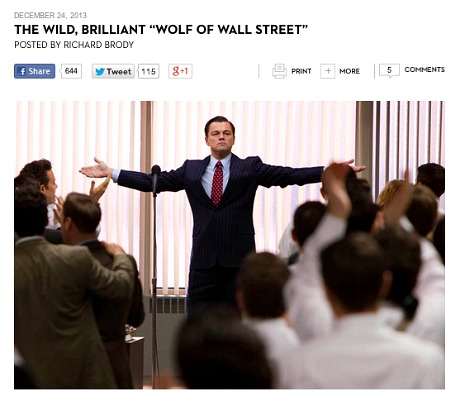“No, of course Scorsese doesn’t approve of Belfort’s actions; who would? We may wish that such behavior didn’t exist, but its existence is a central part of human nature, and there’s a reason that we can’t stop watching, just as we can’t stop watching the terrifying storm or the shark attack. Within the movie’s roiling, riotous turbulence is an Olympian detachment, a grand and cold consideration of life from a contemplative distance, as revealed in the movie’s last shot, which puts The Wolf of Wall Street squarely in the realm of the late film, with its lofty vision of ultimate things. It’s as pure and harrowing a last shot as those of John Ford’s 7 Women and Carl Theodor Dreyer’s Gertrud — an image that, if by some terrible misfortune were to be Scorsese’s last, would rank among the most harshly awe-inspiring farewells of the cinema.” — from Richard Brody‘s 12.24 New Yorker review of The Wolf of Wall Street. Note: The term is self-evident but for the uninitiated Brody should have used “late film” in quotes. It means a film made by an acknowledged auteur in his/her final stage of output (70-plus).

